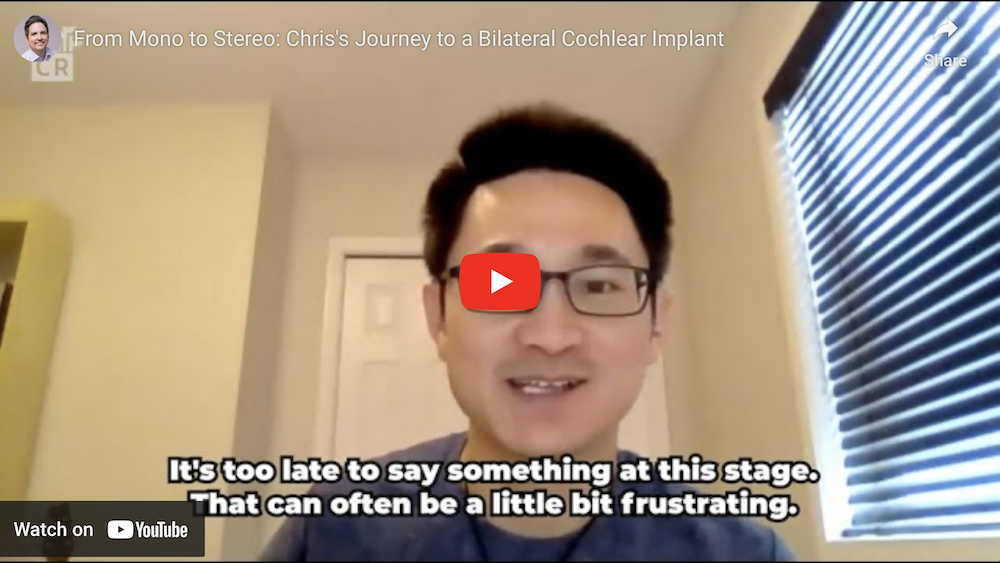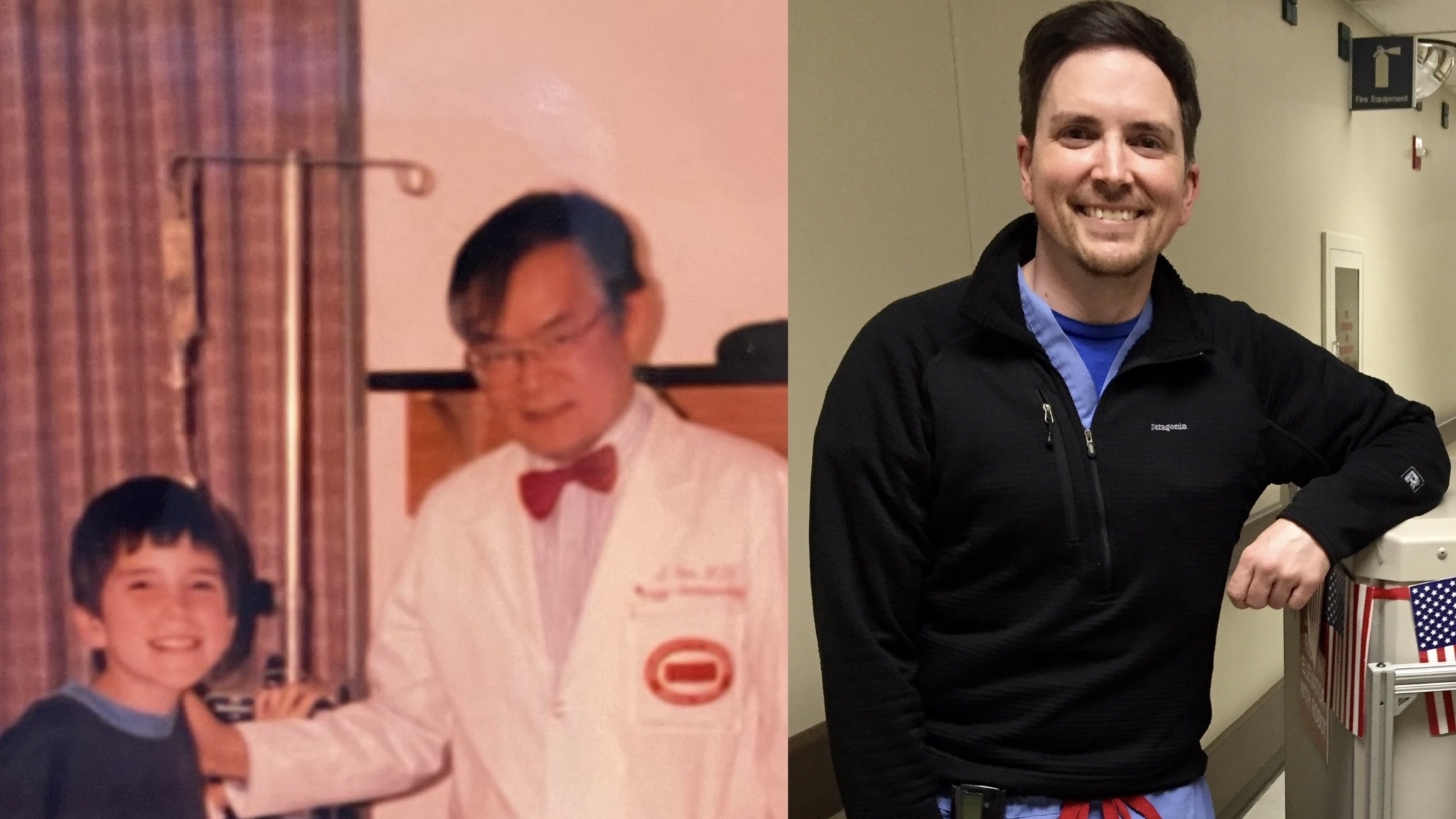From Mono to Stereo: A Patient's Journey to a Bilateral Cochlear Implant

About Chris
We recorded this video with Chris over Zoom several years ago during the pandemic–please excuse Dr. Ruffin's isolating into a supply room. Chris is an engineer who travelled internationally to receive a bilateral cochlear implant from Dr. Ruffin in 2021. “Bilateral cochlear implant” is when patients have a CI and get another one on the opposite ear. Canada does not provide a second cochlear implant to adult patients. Thus, patients often travel to the United States to receive a bilateral cochlear implant. Chris talks about his journey below.
What's involved in the activation of a cochlear implant?
When a cochlear implant is activated for the first time, it's a significant moment, often filled with emotion and anticipation. The process, usually done a few weeks after the surgical implantation, involves a few key steps.
First, an audiologist or a trained professional will turn on the implant's external parts, which include a microphone and a speech processor. These parts capture sounds from the environment and convert them into digital signals. The audiologist then programs the implant to suit the individual's hearing needs, a process known as "mapping." This involves adjusting the levels of electrical stimulation sent by the implant to the auditory nerve, ensuring the user can hear a range of sounds comfortably.
How does getting a second cochlear implant help?
A bilateral cochlear implant involves having implants in both ears, helping people with severe hearing loss in both ears hear better. It's different from bimodal hearing, which combines a cochlear implant in one ear with a hearing aid in the other, blending natural and electronic sound. People choose bilateral implants for clearer hearing in noisy environments, better sound direction awareness, and easier, more balanced hearing, which is also thought to help in reducing risks associated with untreated hearing loss, like dementia. Deciding to get bilateral implants depends on the severity of hearing loss in both ears and the effectiveness of other hearing solutions. Read more about bilateral cochlear implants.
What does a cochlear implant sound like at first?
On the first day, expectations are managed carefully. It's important to understand that hearing through a cochlear implant is different from natural hearing. Initially, sounds may seem strange or unnatural, often described as robotic or electronic. This is because the brain is adjusting to a new way of hearing. Patients are counseled to be patient and practice listening, as the brain gradually adapts and begins to interpret the signals more effectively. Over time, with practice and possibly further adjustments, sounds become clearer and more natural. Read more about how sound changes over time with a CI.
Experience with music
People with cochlear implants experience music differently due to the way these devices process sound. These implants, designed mainly for speech, simplify sounds, which can affect how well users hear musical pitch and tone, although they usually pick up rhythm quite well. Each person's experience can vary a lot, influenced by factors like when they got their implant and their familiarity with music. Over time, many users find they enjoy music more, as their brain adjusts and they might receive better technology or training. Interestingly, enjoying music and understanding speech with an implant don't always go hand-in-hand; some people might struggle with speech but still love music. Despite the challenges, many cochlear implant users learn to appreciate music in their own way. Read more about some of the technical components of hearing music with a cochlear implant.
How CI helps with relationships & work
People with hearing loss often don't see the effect of hearing loss on their closest family members and friends. Chris talks about how his relationship with his wife changes. He also discussed how his cochlear implant helped at work.
Why he chose Dr. Ruffin
We'll let you hear from Chris about this one 😊.
Recent Blog Posts
Ready to get started?

Dr. Ruffin is committed to providing every patient with outstanding care.



.png)

